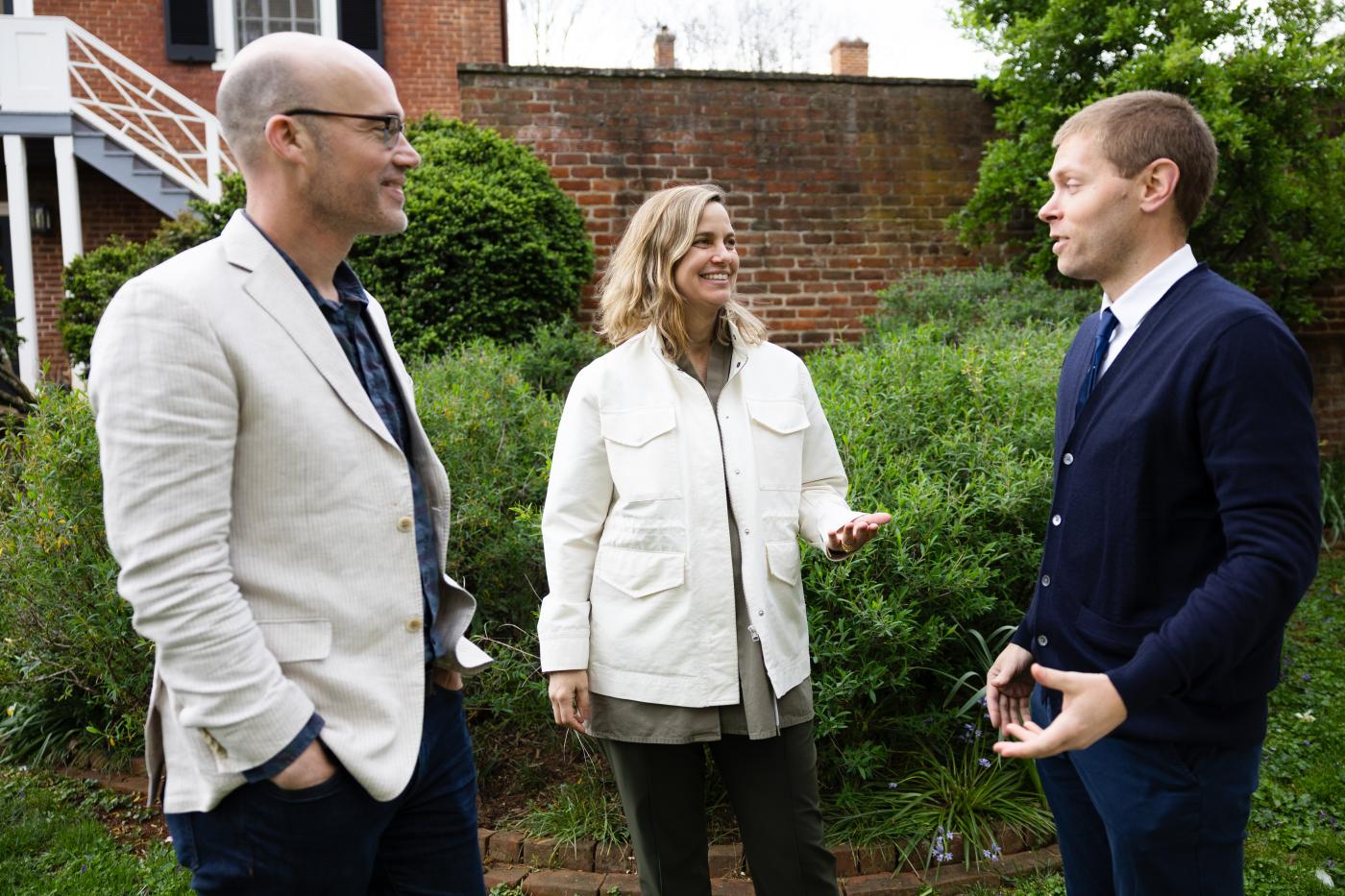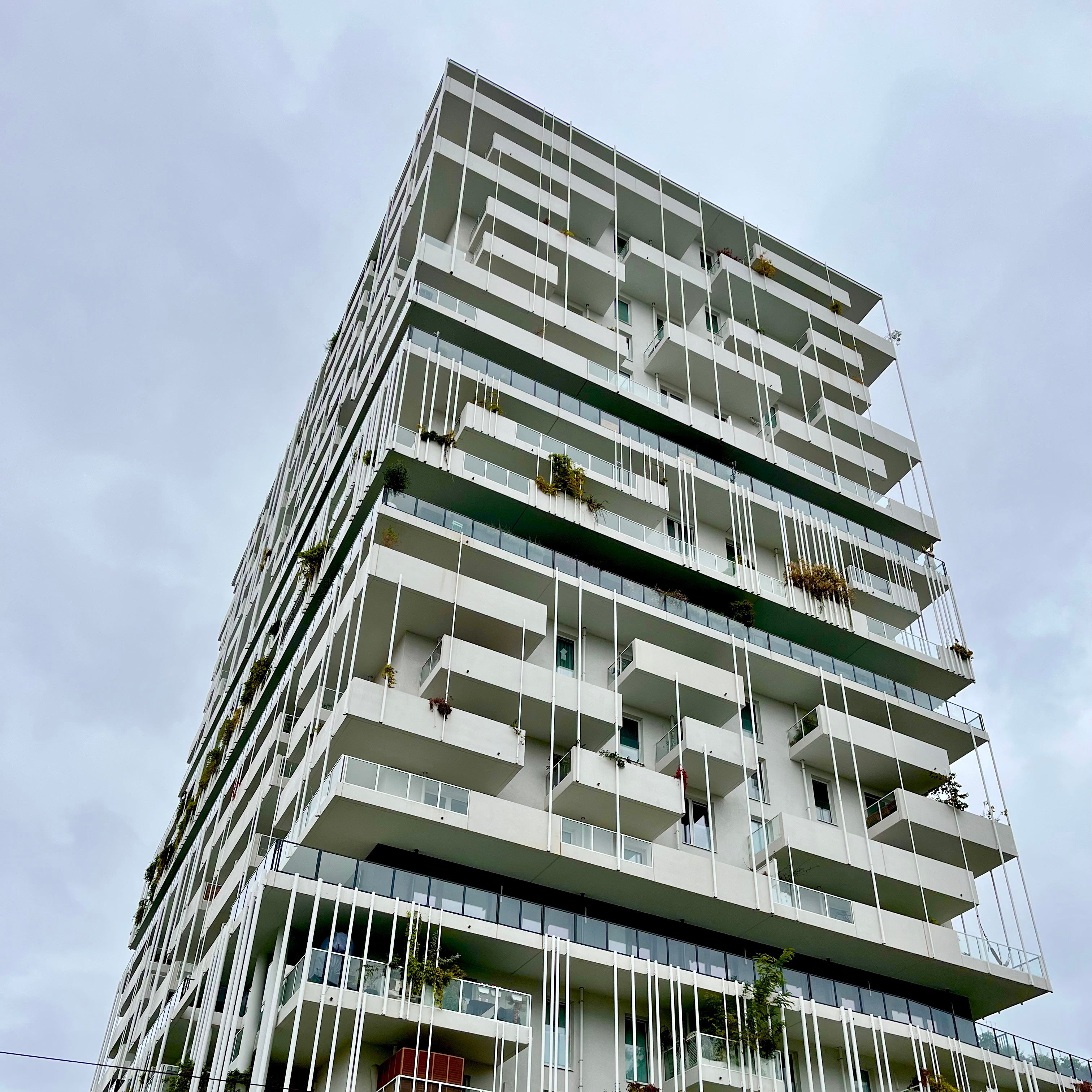
Landscape Architects Kate Orff and Nancy Takahashi celebrated on Founder's Day
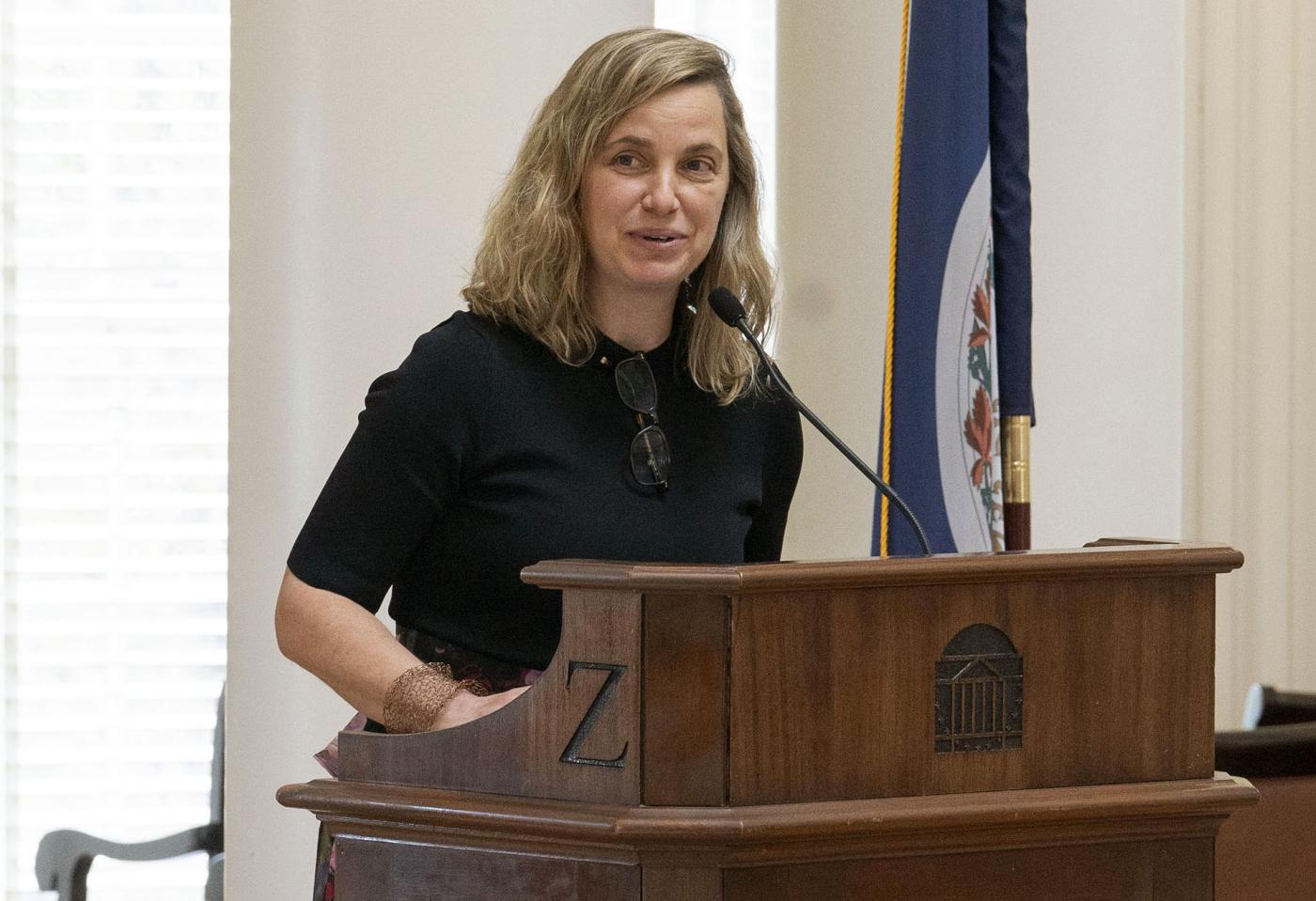
Over the course of two days, April 11th and 12th, the University of Virginia and the Thomas Jefferson Foundation at Monticello celebrated this year’s medalists, honoring individuals across the fields of architecture, law, and citizen leadership.
This year highlighted the critical role of landscape architecture in the making and stewarding of our world – in addition to medalist Kate Orff, landscape architect and founder of SCAPE, being recognized for her renowned work, retired landscape architecture professor Nancy Takahashi was honored during a special tree planting ceremony on Founder’s Day, commemorating Jefferson’s 281th birthday.
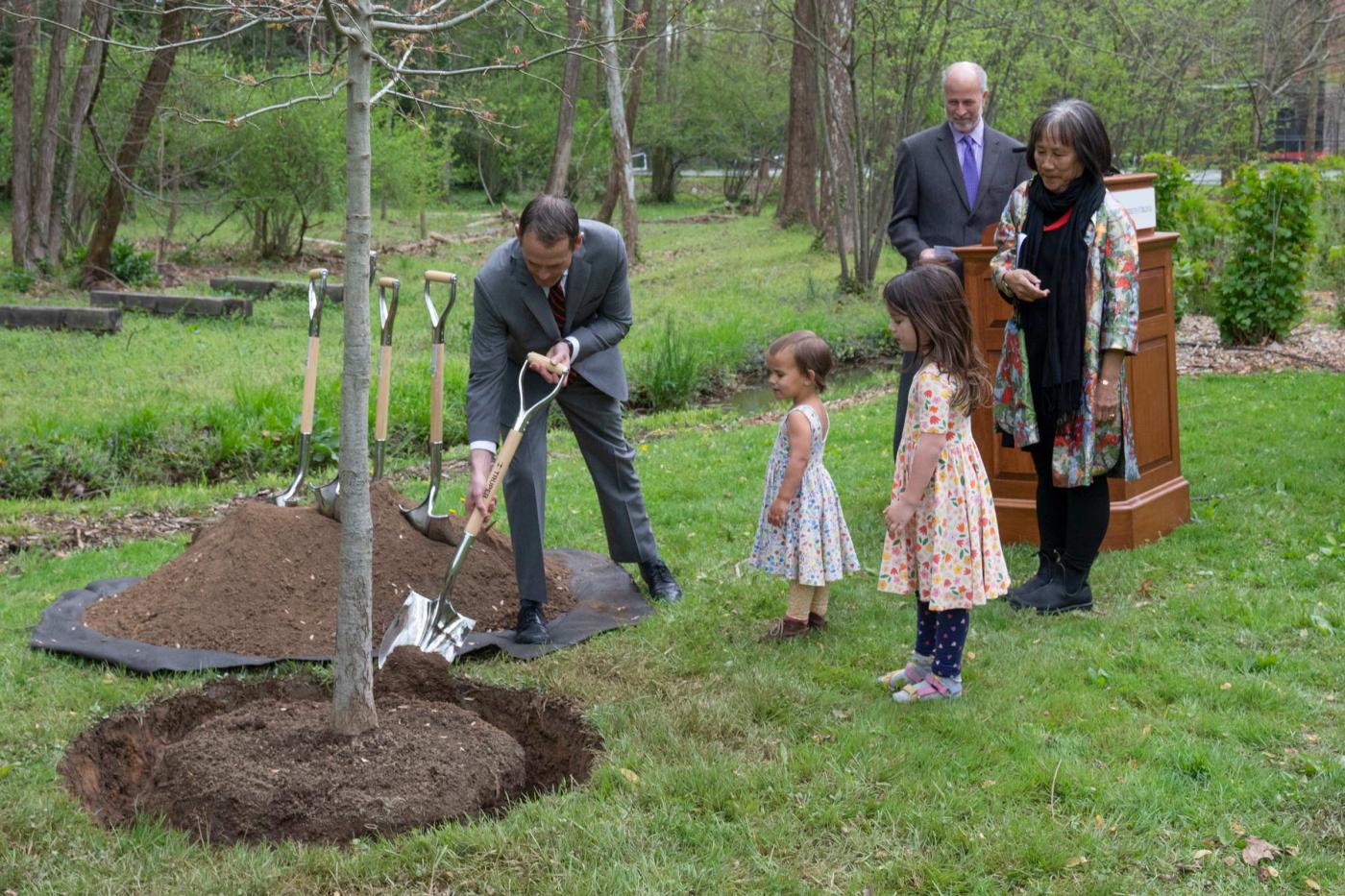
An Oak for Nancy
Nearly 100 people gathered on the morning of April 12th in the University of Virginia’s Dell to honor Takahashi’s service to the University and the School of Architecture, as a teacher, researcher, and steward for over three decades.
Takahashi’s family, friends, and colleagues joined her in celebration and gratitude as a Shumard Oak in her name was planted set along Meadow Creek, part of the Dell, described by Eric Nagy, member of the University’s Arboretum and Landscape Committee, as “a sacred space.” In 2020, Takahashi led the committee’s master plan update for the Dell, including plans for restoring its tree-lined walkways, topography, and natural waterway.
Working to help restore the Dell is just one of many labors of love that Takahashi has been involved with as she has tirelessly advocated for the care and cultivation of the landscape of Grounds, and at times, facing unpredictable challenges.
On this day honoring her, she reflected on optimism. “…[You] have to face [the] challenges with grace and resilience and focus on solutions that will lead to a greater outcome, a better outcome than you might expect.”
Kate Orff on Reflections, Reckonings, Responses
Resilience was a consistent theme on Founder's Day as Kate Orff, who has built a leading landscape architecture practice based on ecological and social resilience, was joined by fellow medalists Chief Judge Roger L. Gregory (Medalist in Law) and Julieanna L. Richardson, founder of The HistoryMakers (Medalist in Citizen Leadership), in the Dome Room for the medal ceremony.
UVA President Jim Ryan opened the program, “[Today is] and opportunity to ask ourselves what more we can do to live out the University’s mission as Jefferson visualized, which included, importantly, preparing leaders to sustain a thriving democracy – a mission that is as important today as ever.”
The medals are the highest honors that the University and the Foundation bestows.
The School of Architecture not only hosted medalist Kate Orff, but welcomed her back to UVA, her alma mater. Orff received her undergraduate degree with distinction in Political and Social Thought from UVA prior to attending Harvard University’s Graduate School of Design for her graduate studies in landscape architecture. Orff’s visit was a source of inspiration, and a fitting opportunity to recognize her significant contributions to society and her deep commitment to fostering ecologically and culturally thriving communities.
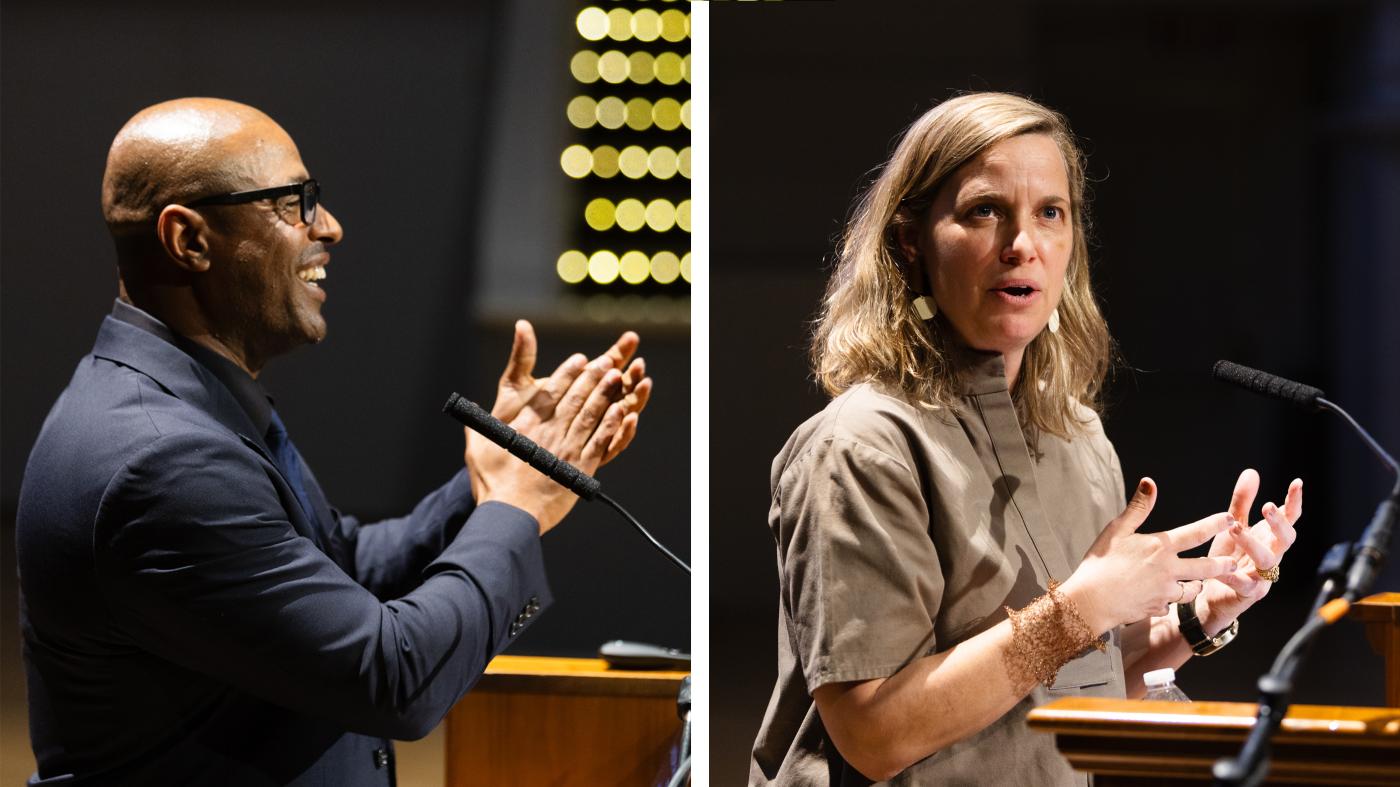
In her public talk presented in Old Cabell auditorium, Orff spoke with a balanced tone of pragmatism and optimism, about the impacts of climate change and actions necessary to help, as she said, “heal a burning earth and boiling oceans.”
Dean Malo A. Hutson introduced Orff to the audience as “not just a brilliant designer” but also “someone who brings hope to the communities she works with around the world” and “a mentor, educator, and role model” to the UVA community.
Over the next 45 minutes, Orff weaved a narrative across the foundations of her ethos – first introducing attendees to her undergraduate thesis on ecofeminism which laid the groundwork for her lifelong commitment to environmental activism through the synthesis of design, politics, science, and ecology.
Sharing a verse from one of her favorite poems "Station Island" by Seamus Heaney, Orff spoke directly to the students in the room, when she noted how as a young student herself, his powerful, and reassuring, words — “Now strike your note” resonated with her, reminding her of every individual’s capacity when following their own path.
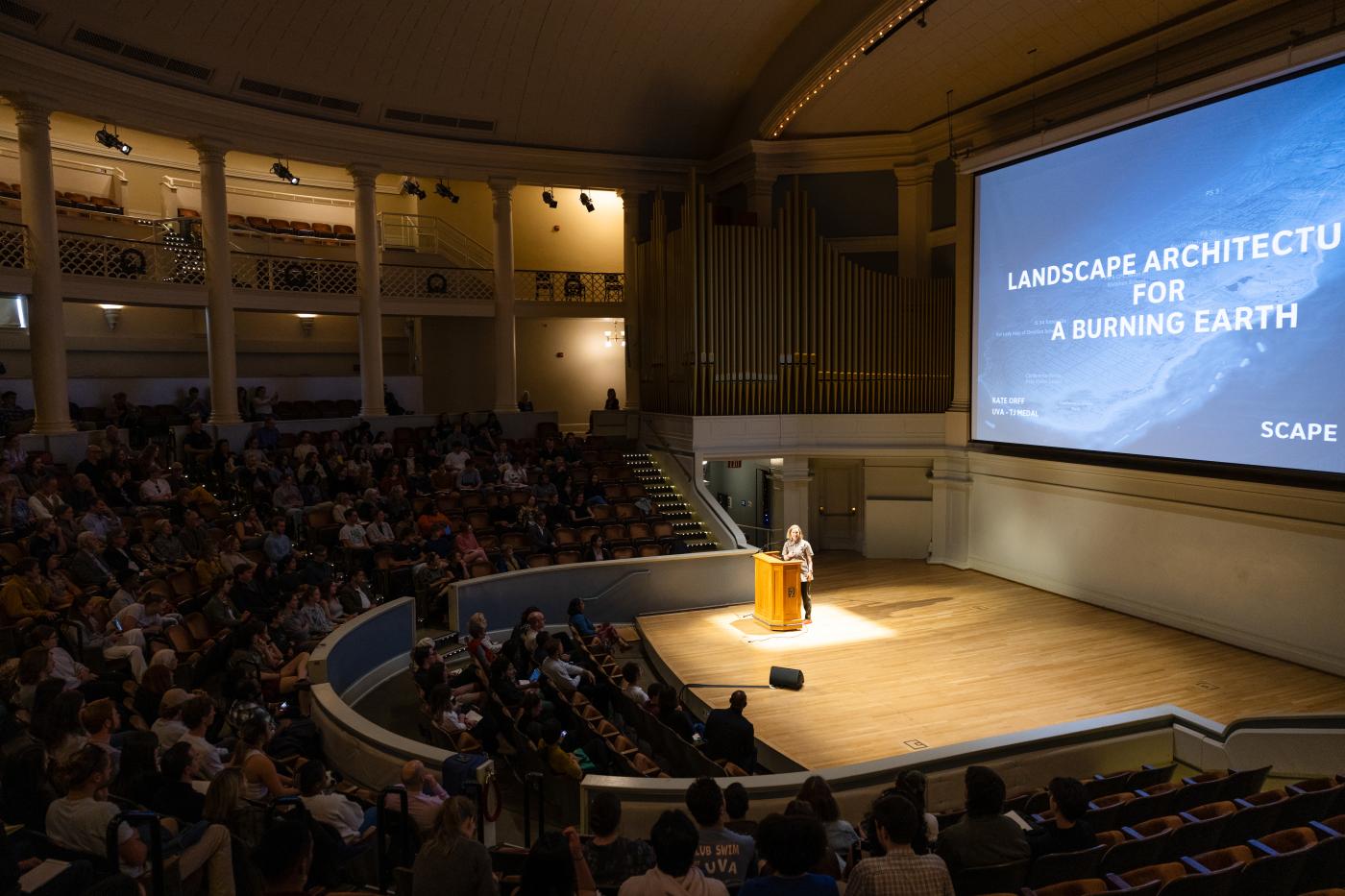
She followed by laying the groundwork of the founding of her New York-based practice, SCAPE, that was predated by a collaboration with photographer Richard Misrach, which resulted in the book Petrochemical America. Presented in two parts, the book first features Misrach’s photographs of the Mississippi River industrial corridor, stretching from Baton Rouge to New Orleans—one of America’s most industrialized places, and a region that first garnered public attention as “Cancer Alley” because of the unusual occurrences of cancer in the area. The second part of the book integrates these photographs into a series of visual narratives created by Orff and her office and unpacks the complex cultural, physical, and economic issues of the region.
Over a decade following its publication, Orff’s projects remain committed to not shying away from the complex conditions of layered and interwoven landscapes. Her practice not only studies and sheds light on fractured landscapes but it also helps mend them through ecologically restorative and socially engaged environments that integrate innovative responses of natural infrastructure.
Orff shared four projects that wove together her ideas of how “nature is a matter of design” into action: Living Breakwaters, China Basin Park, Tom Lee Park, and the Louisiana Coastal Masterplan.
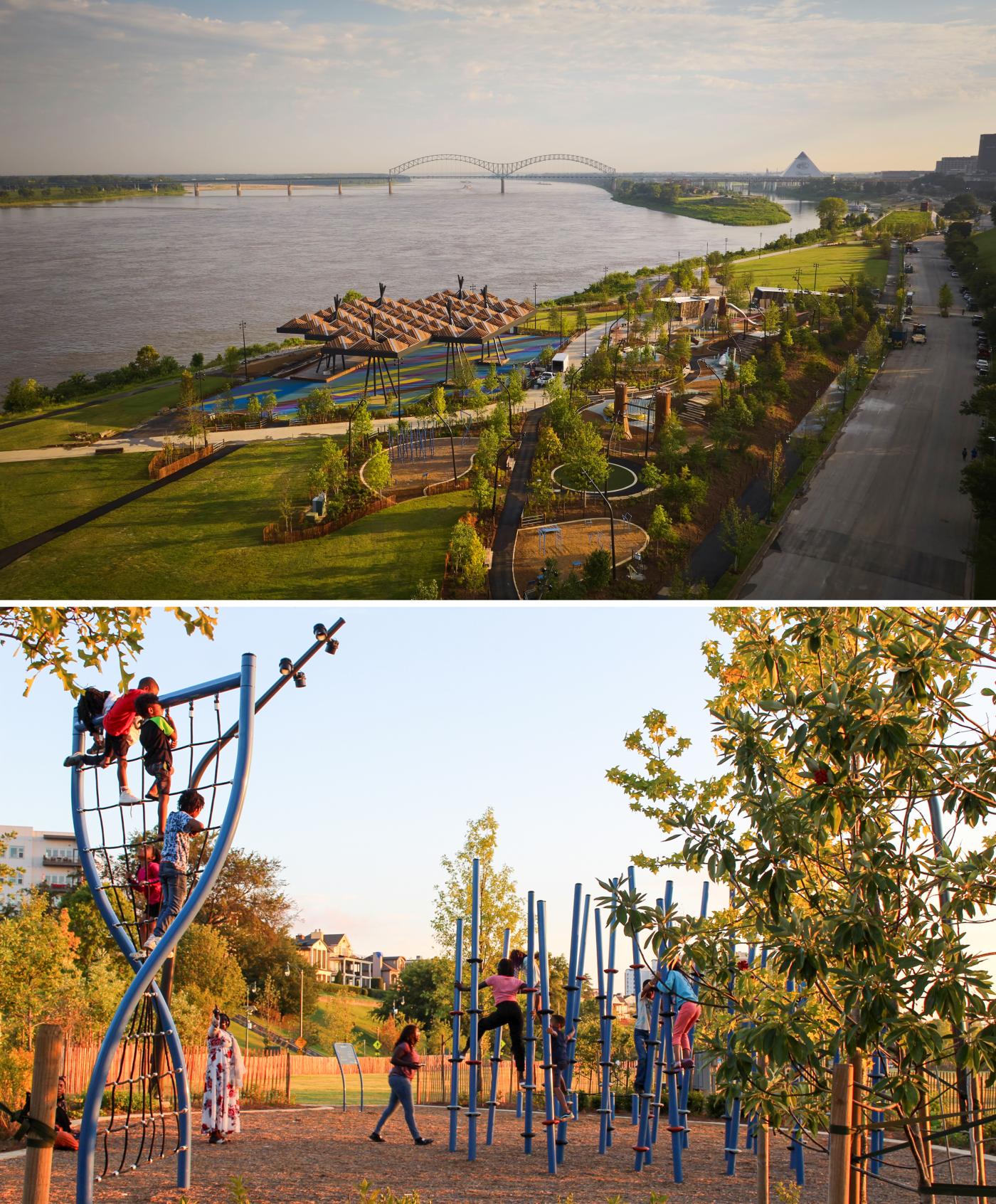
Each project allowed Orff to share approaches across scales, contexts, and geographies, while highlighting how every design and technical decision was also partnered with local educational programming and social engagement. Orff emphasized how some of her favorite parts of these projects were designing public school curricula that could be used by local teachers to engage their students on-site, providing teaching tools to show first-hand how SCAPE’s designed landscapes are restorative, and how the sites’ histories, cultures, and economies are embedded in the landscapes themselves.
Orff concluded her talk with a slide of another book – this time the title All We Can Save, an anthology of writings by 60 women at the forefront of the climate movement “who are harnessing truth, courage, and solutions to lead humanity forward.” In her contributing essay titled “Mending the Landscape,” Orff frames the vital work ahead for the planning and design professions in an era of interconnected biodiversity, climate, and social crises. Highlighting the ethic of the ‘collective,’ Orff’s visit and her talk, came back full circle in their echoes of Nancy Takahashi’s sentiment on resilience. Both Orff and Takahashi show us the brave spirit of dedicated care and recovery of our landscapes, and in turn, of our more resilient futures.
